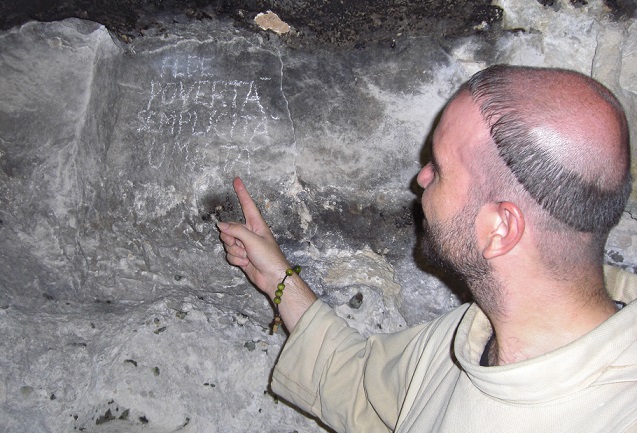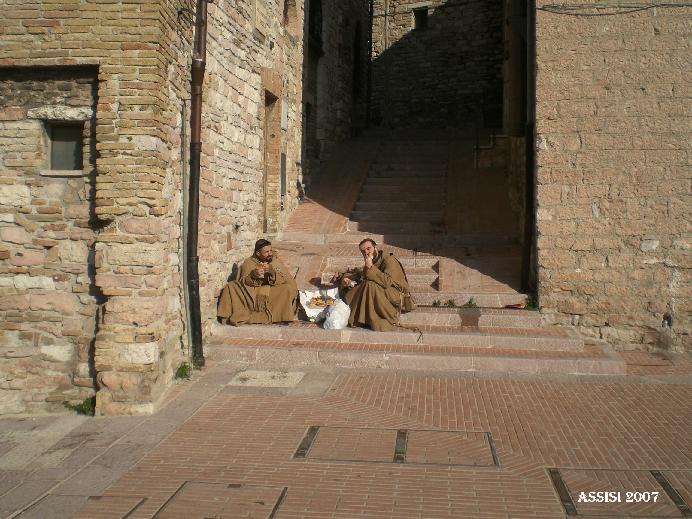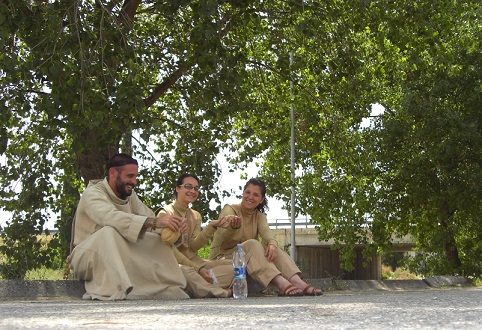POVERTY...
(STATUTE Ch. 2 - Evangelical Poverty)
2,3 EVANGELICAL POVERTY (cf. CIC 600), embraced voluntarily in order to set oneself to the sequela Christi [following of Christ] (cf. PC 13), is always lived cum Deo et cum Ecclesia [with God and with the Church], in the imitation of Christ, who became poor although He was rich, so that by His poverty many might become rich (cf. 2Cor 8:9).

Jesus made himself needy even for physical water from the Samaritan woman, so that He could then give her the spiritual water which springs up for eternal life (cf. John 4:7-14ff). In the context of the heavenly treasure that Jesus has promised (cf. Matt 19:21, 27-29), this poverty must be lived out in daily reliance on Divine providence, as a challenge to the materialism which is avid for possession and in the hope that those who see us may open themselves, not only to hearing the Word of God, but also to loving the Church, her ministers, and the sacraments which they administer.

2,4 IN ORDER THAT THE CHOICE OF POVERTY (or rather the concrete detachment from material things) may not only be affective (cf. 1Tim. 6:10) but also effective (cf. Matt 19:21), for the greater glory of God and the salvation of the most souls possible, it must be lived out in the manner of the Apostles (cf. Matt 19:27-29; Acts 2:44-45), St. Francis of Assisi, the teaching of the Council of Vienne, and the Pontifical Magisterium - in order to avoid distractions from contemplation and prayer (cf. Acts 6:2), that we may better distinguish the true will of God (cf. Matt 7:21; Col 1:9) from merely human initiatives.

2,5 THROUGH EVANGELICAL POVERTY WE CAN ATTRACT many souls who are intrigued by it, with the aim of dialoguing with them more easily and helping them reflect on the beauty of the Catholic Church and on the fundamental importance of the sacramental life (cf. John 4:7-15) which gives the fullness of salvation (cf. Luke 1:77; CCC 868; UR 3).
